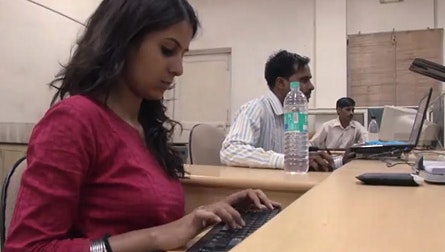Freedom of Information in India: Two Million Requests. Now What?
By Emi MacLean

What do you get when the world’s largest democracy passes a right to information law? How can the system effectively process every day hundreds of thousands of requests for information from ordinary citizens? How can you ensure that requests about how licensing decisions were approved, or whether a new building has proper planning permission, reach the right department and get a proper answer?
We visited the New Delhi office of information commissioner Shailesh Gandhi in late 2012 to find out.
In the first three years after India’s right to information (RTI) law was passed in 2005, there were over 2 million information requests. But the huge demand has also created a tremendous backlog—with thousands of requests pending before the state and national information commissions.
From 2008 to 2012, Gandhi served as one of India’s eight central information commissioners, who are tasked with handling appeals over disputed applications for the government to release information. A former businessman, Gandhi was an active campaigner for the public’s right to information before he was named as a commissioner—giving him a unique perspective on the process.
Fearful that the backlog of information requests would make the “common man… lose faith in the system,” Gandhi committed to systematically, and quickly, resolve cases with “quality… right to information judgments with transparency as the soul.”
In his office, he set out to create the most effective system possible, to help resolve backlogs, and ensure transparency as the default, with only limited exemptions where permissible. In this short video, shot in Gandhi’s paper-free office, he talks about his approach, and the challenges of the job.
India is one of a number of countries with information commissions or commissioners serving as independent oversight bodies to resolve public information requests, with the bodies sometimes serving as a precursor to optional judicial review.
In his nearly four years as commissioner, Gandhi resolved more than 20,000 cases. But he insisted that he could have resolved even more with continued digitization, systematization, and a commitment to hearing and deciding cases rapidly: “What I have done is just the beginning.”
Until April 2016, Emi MacLean was a legal officer for freedom of information and expression with the Open Society Justice Initiative.